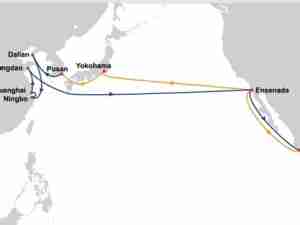The remaining 30% attracted comments relating almost entirely to service and maintenance and safety standards, which the inspectors focus on during their four-hour checks. Again, there was a marked improvement on 2007.
Ship visits enable managers to keep an eye on the quality of entered fleets. The inspectors, four ex-masters and a former chief engineer, visited 479 vessels in 2008----around 15% of the total entered fleet. They concentrate on areas that could produce accidents and injuries, and other liability claims.' If there is serious concern over quality standards on a vessel, a full condition survey is instigated by the inspector and carried out by an independent surveyor.
Some 23 ships, just five percent of those inspected, were deemed below standard in one or more areas and five---only one percent---were considered sufficiently unsatisfactory to require a full condition survey. Two were general cargo vessels, two were oil tankers and one was a bulk carrier. Three were over 20 years old.
Ships over 20 years old are particular targets for the inspectors, especially if they have not been visited recently or have not undergone condition surveys in the past five years. In 2008, 85 such vessels, including some with shortcomings noted in 2007, were inspected with 22 incurring recommendations for repair.
For some time, the age profile of the UK Club's entries has been younger than the average for the world's oceangoing merchant fleet. Currently, 56% of vessels are under nine years old and only 18% are over 20. The world fleet averages are 52% and 21% respectively.
Last year, inspections took place in the Netherlands, Belgium, Taiwan, USA, United Arab Emirates, China, India, United Kingdom, Singapore, Italy, Canada, Venezuela and Argentina. The pattern of ships visited was fairly representative of the Club's profile. However, bulk carriers and general cargo ships had a higher proportion of visits.
A recent study by Intercargo has indicated that UK Club entered vessels have one of the best records for low rates of Port State Control detentions.
During 2008, some 252 third party condition surveys were carried out, the same number as the previous year. There were 175 initial surveys, principally on new entries----a few before but most shortly after acceptance. Surveys were also occasioned by insurance claims, class society changes, vessel age, the carriage of heavy fuel oil, inspection visits and reactivation after lay-up.
Managers' recommendations for repair were issued to 51 ships. For dry cargo ships, most related to cargo worthiness, particularly hatch covers. Disregard of the onboard ISM system was also noted on several vessels. About 30% of surveys were follow up exercises to check that work had been carried out satisfactorily.
Since 2006, heavy fuel oil surveys have been required by the International Group on any tanker more than 10 years old that has carried HFO in the 12 months prior to renewal. All three UK Club tankers surveyed in 2008 were assessed as satisfactory.
Ship names and condition survey dates are logged on an International Group database under procedures for ship safety, agreed and advised to states in the context of the IOPC Funds. Underwriters check this database prior to considering a ship for entry.
By the end of 2008, total inspections since the scheme started in 1990 stood at 9664. Karl Lumbers, the UK Club's Loss Prevention Director, maintains that the ship inspection program has assumed much greater importance since it began.
'Experience has enabled us to target the vessels and circumstances where inspectors' observations and advice will be most valuable. In the great majority of cases, inspection provides an early warning system to spot shortcomings that might otherwise become more serious. Accordingly, masters and operators appreciate what





